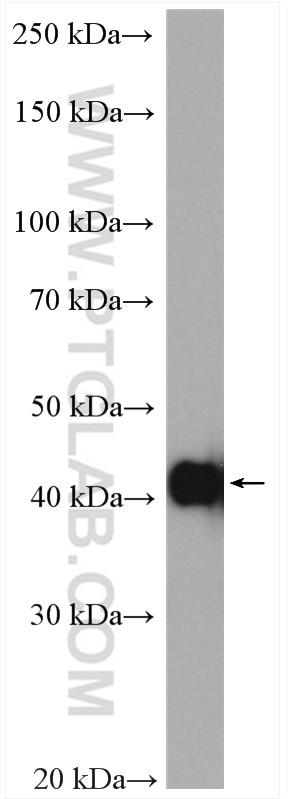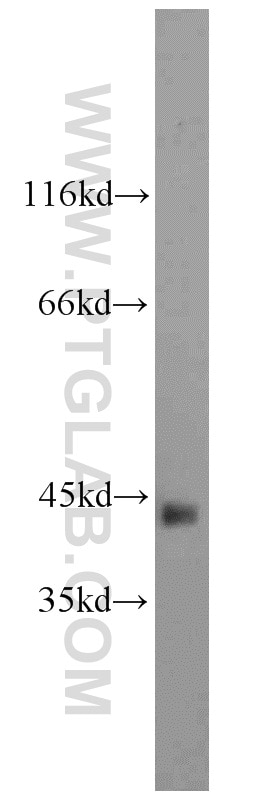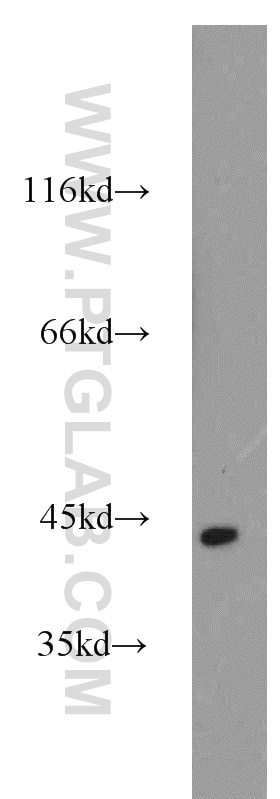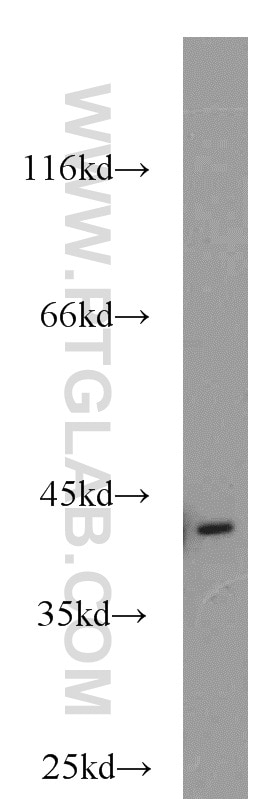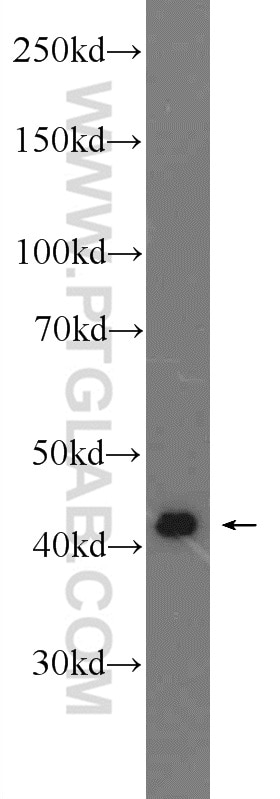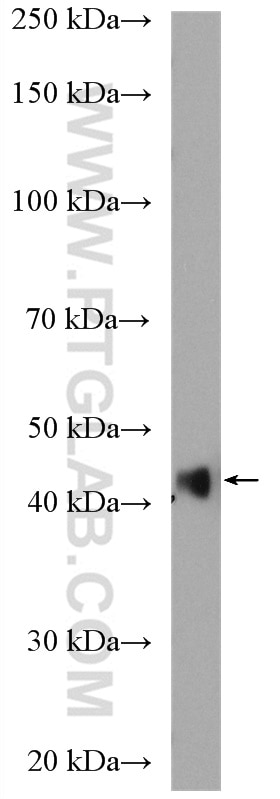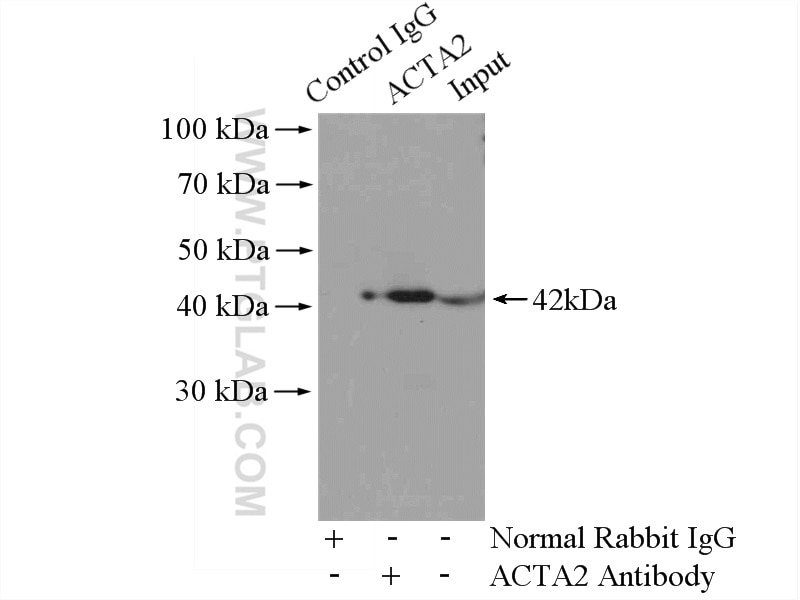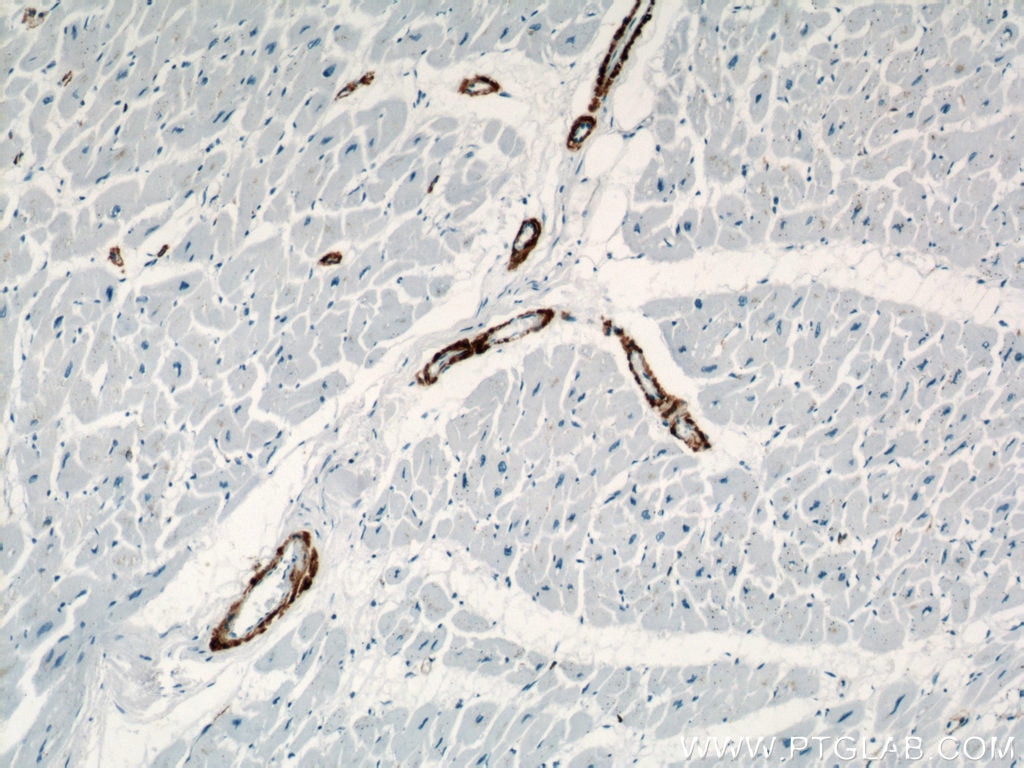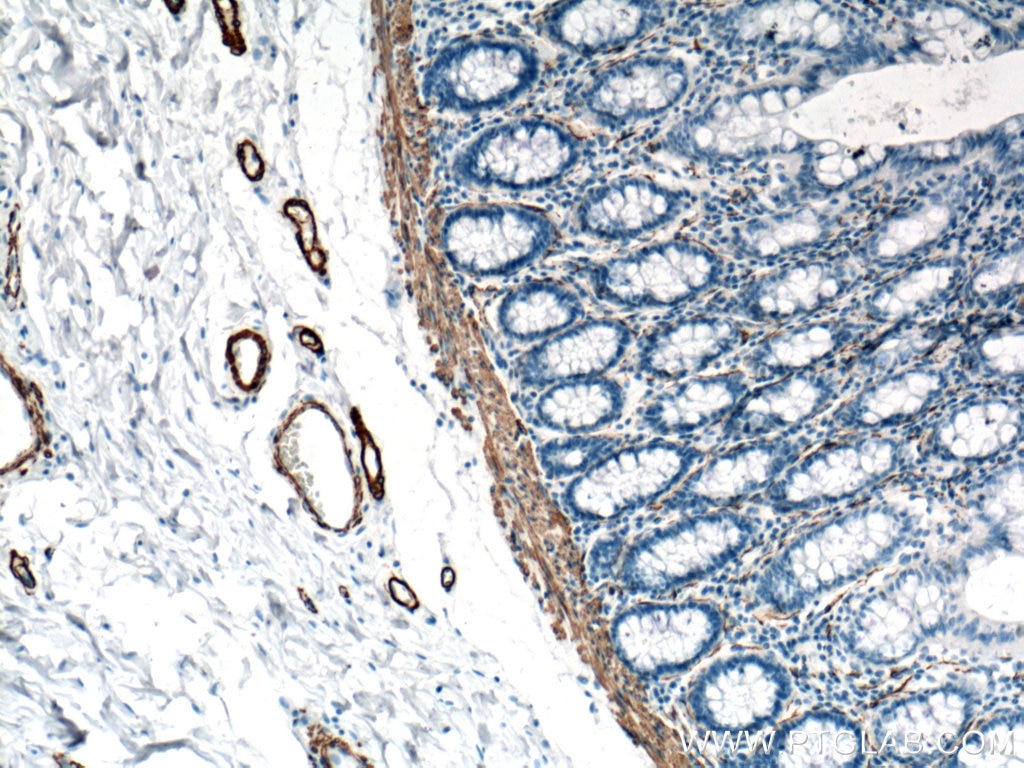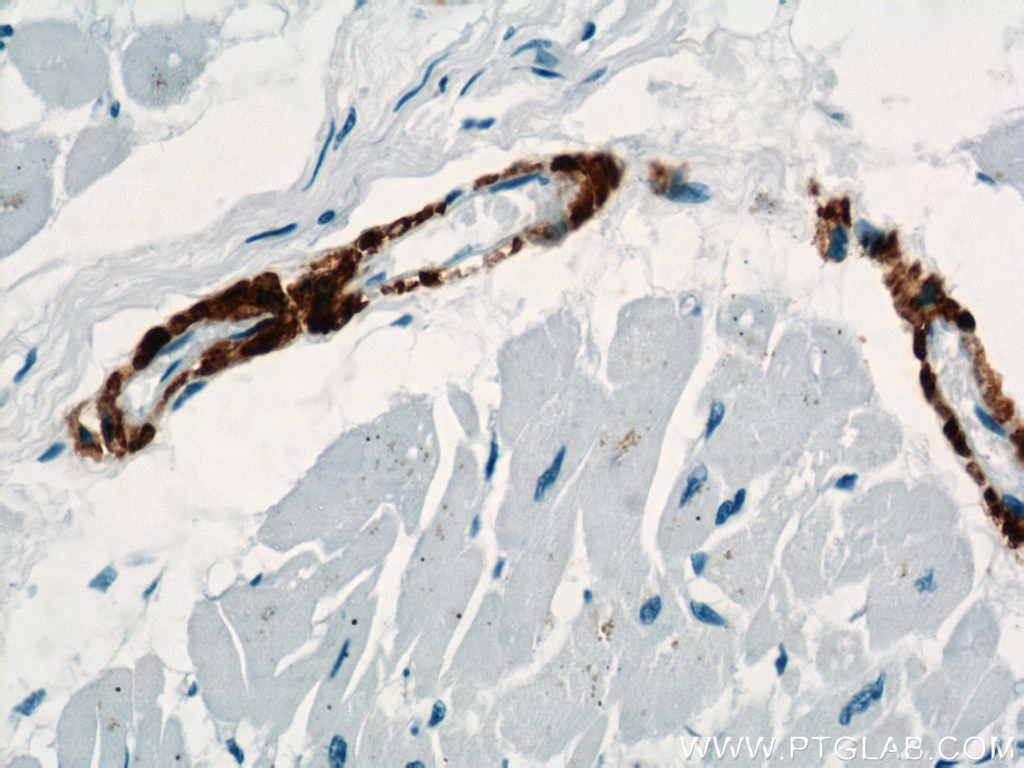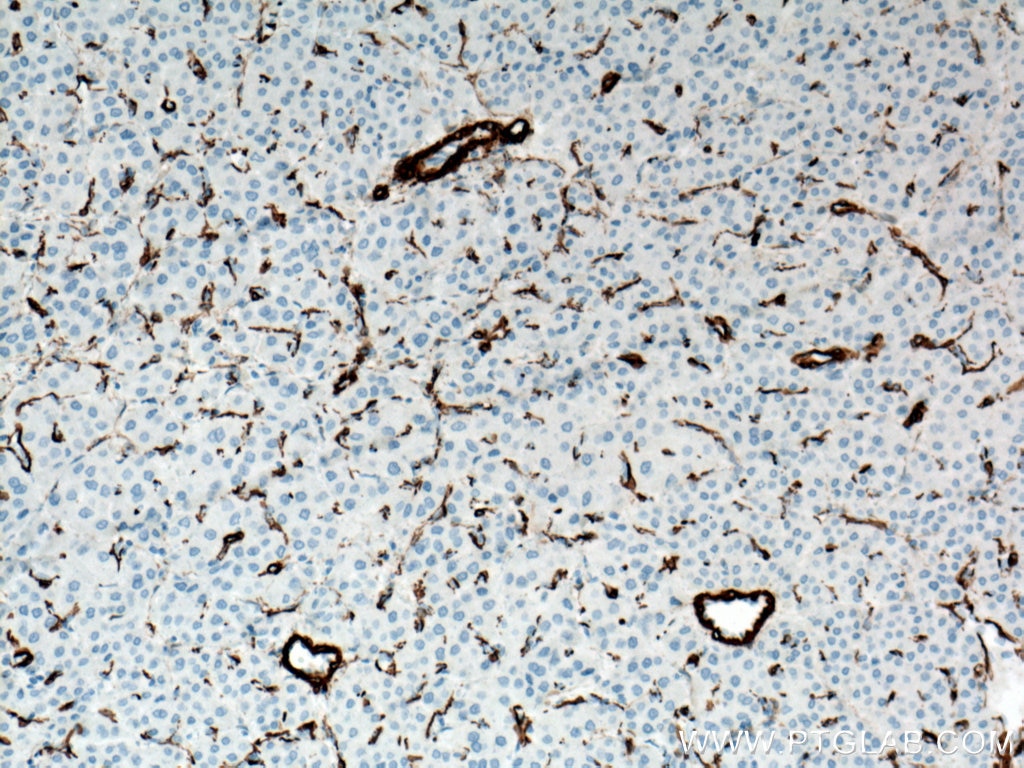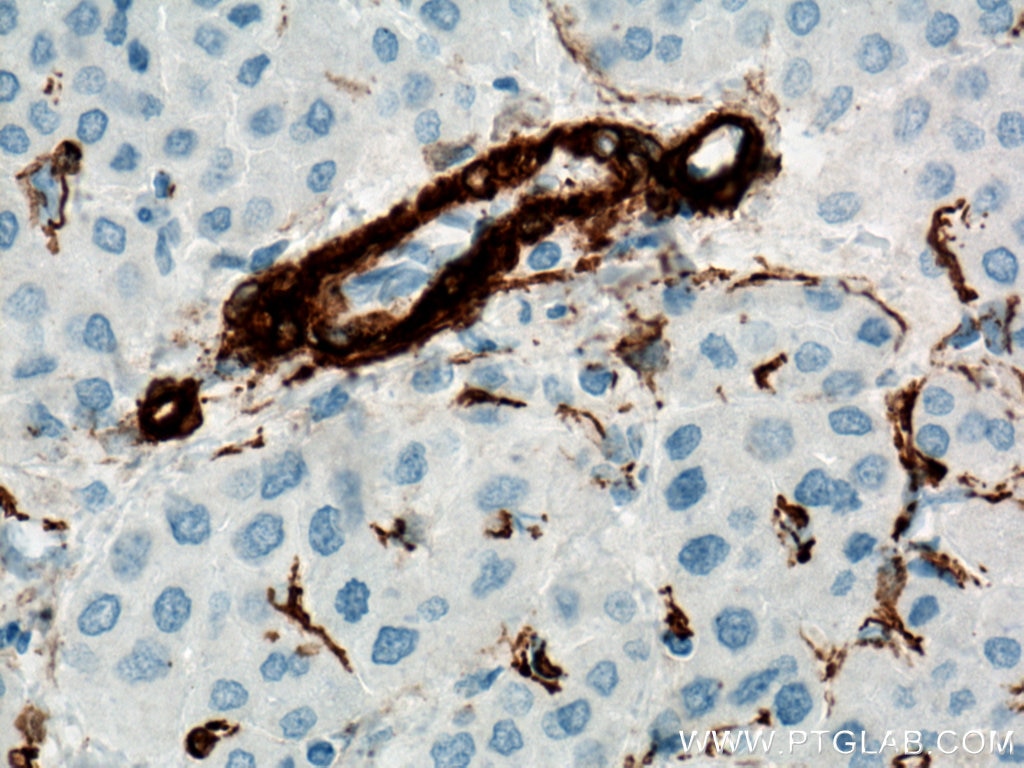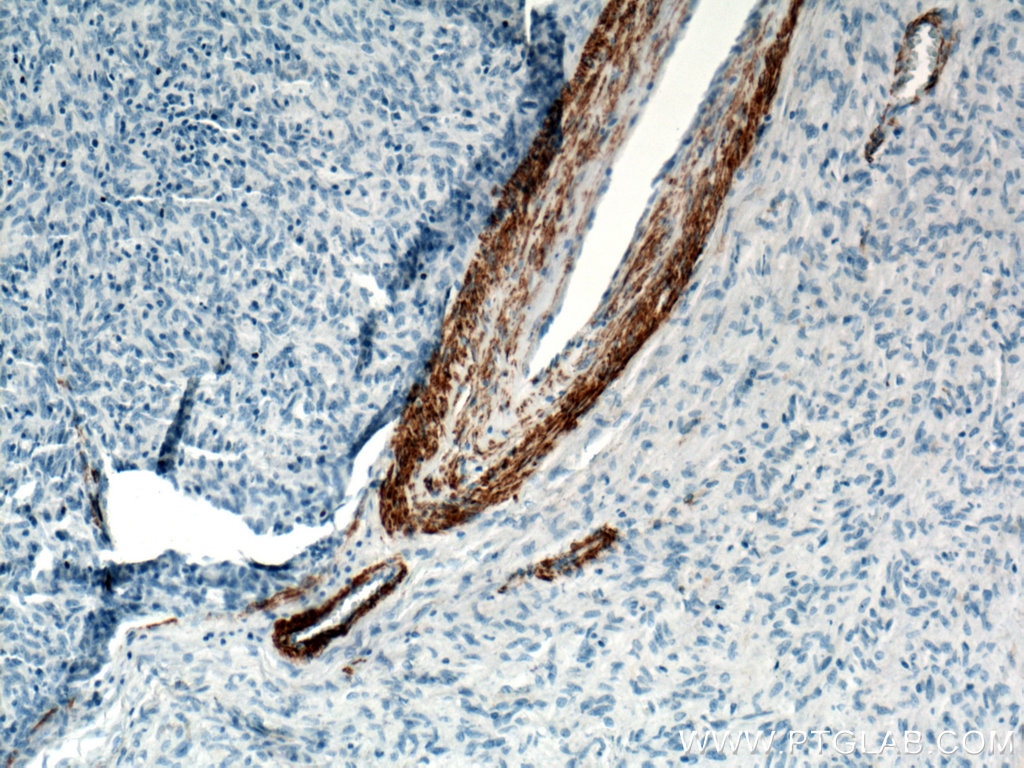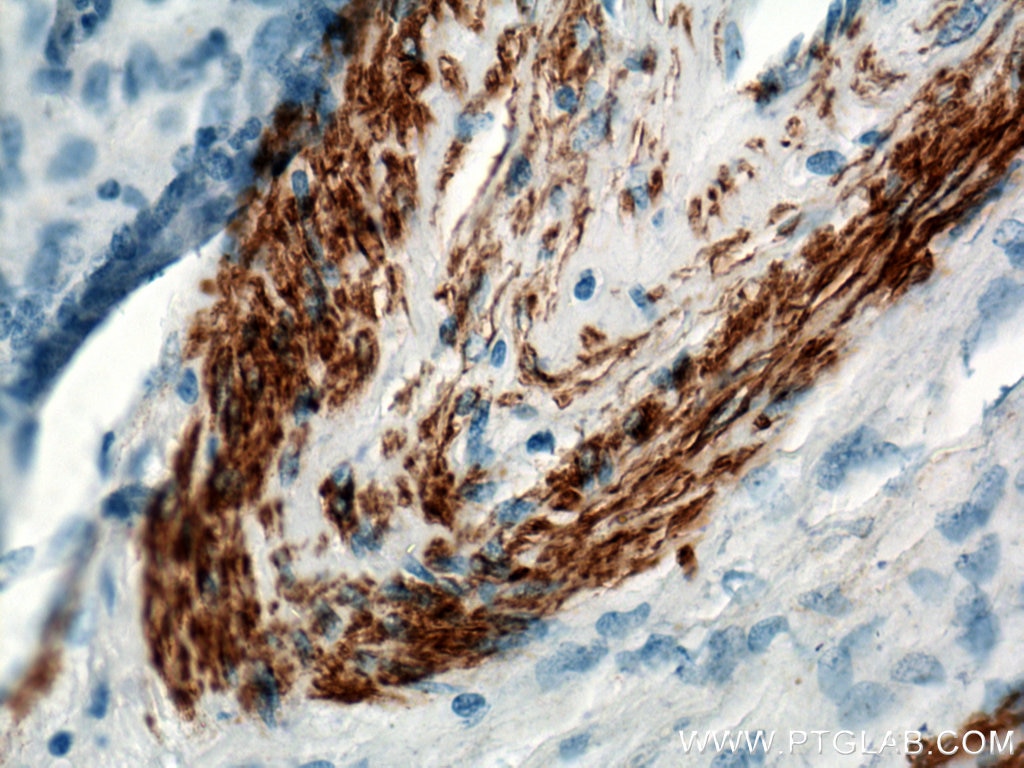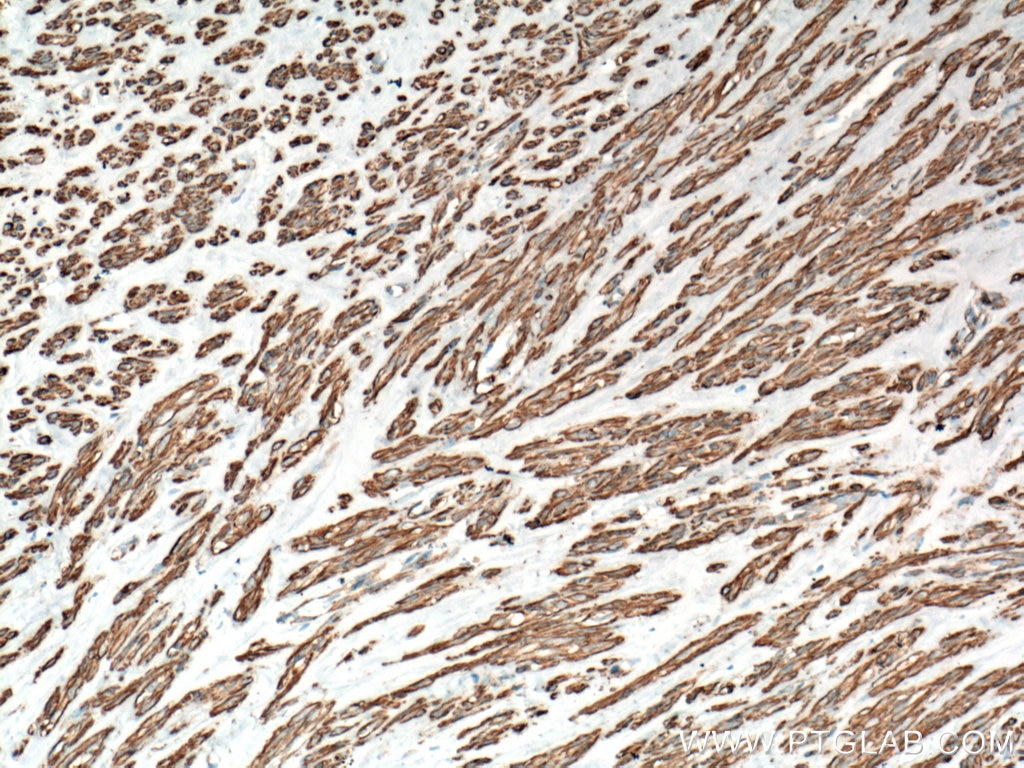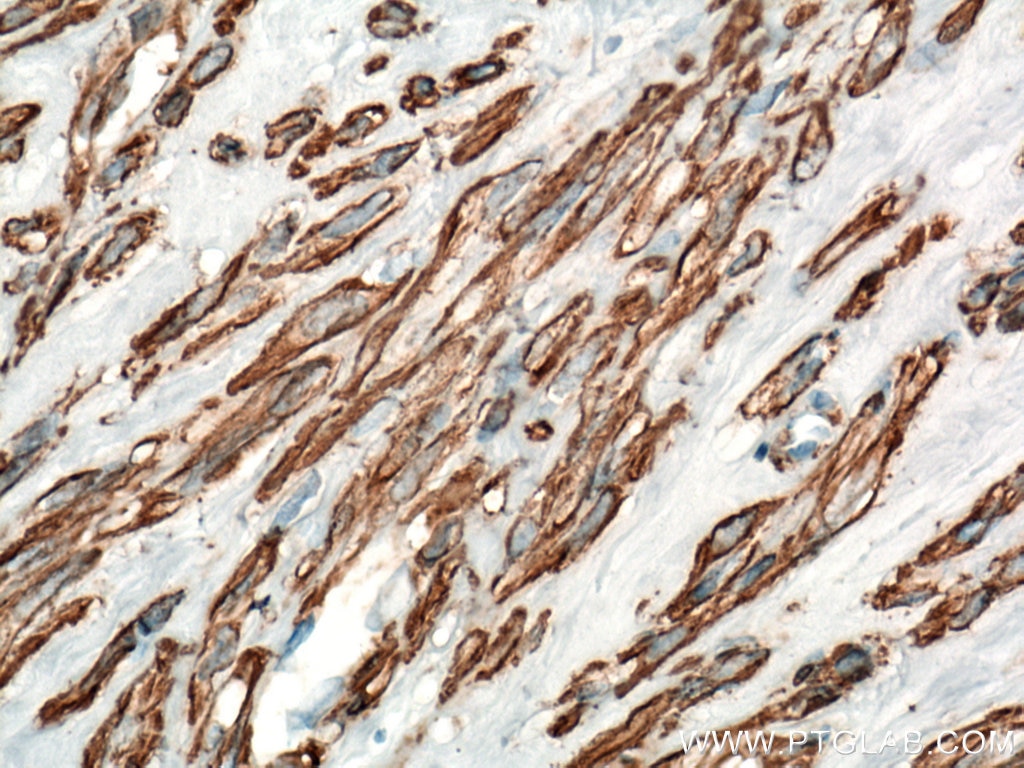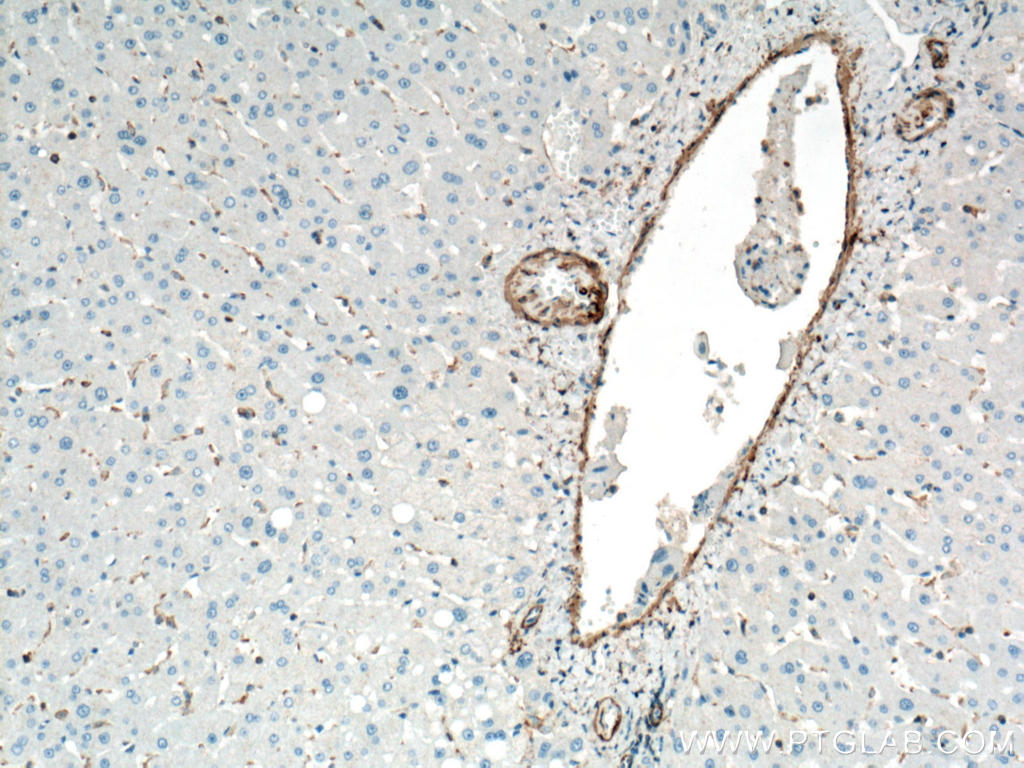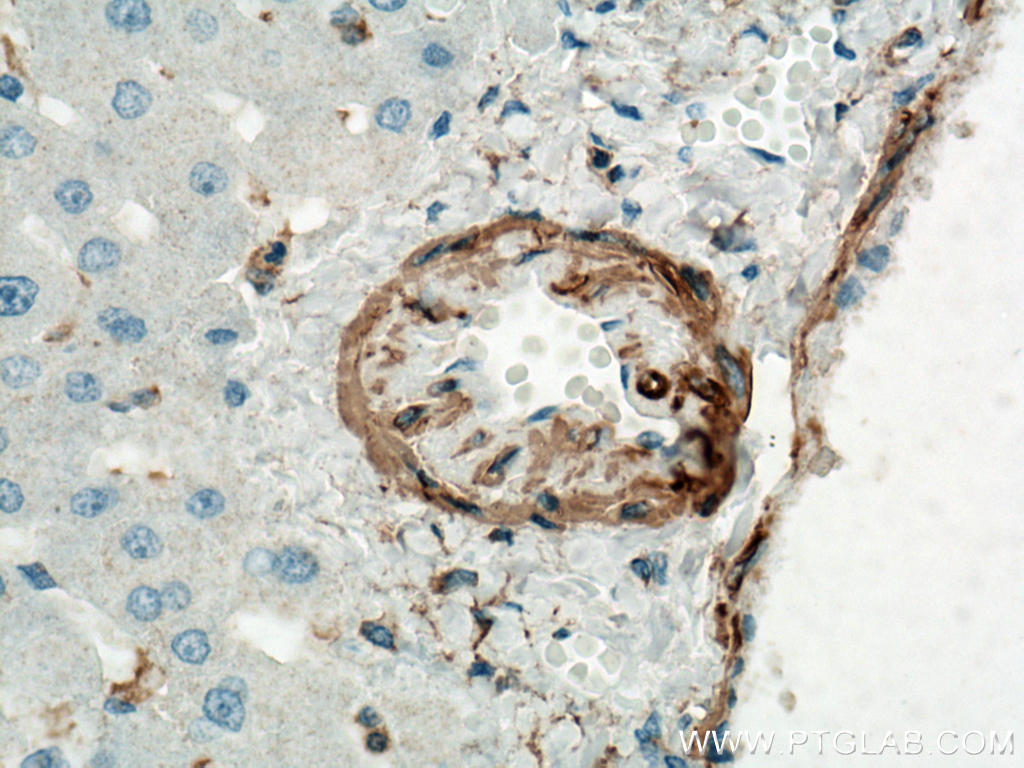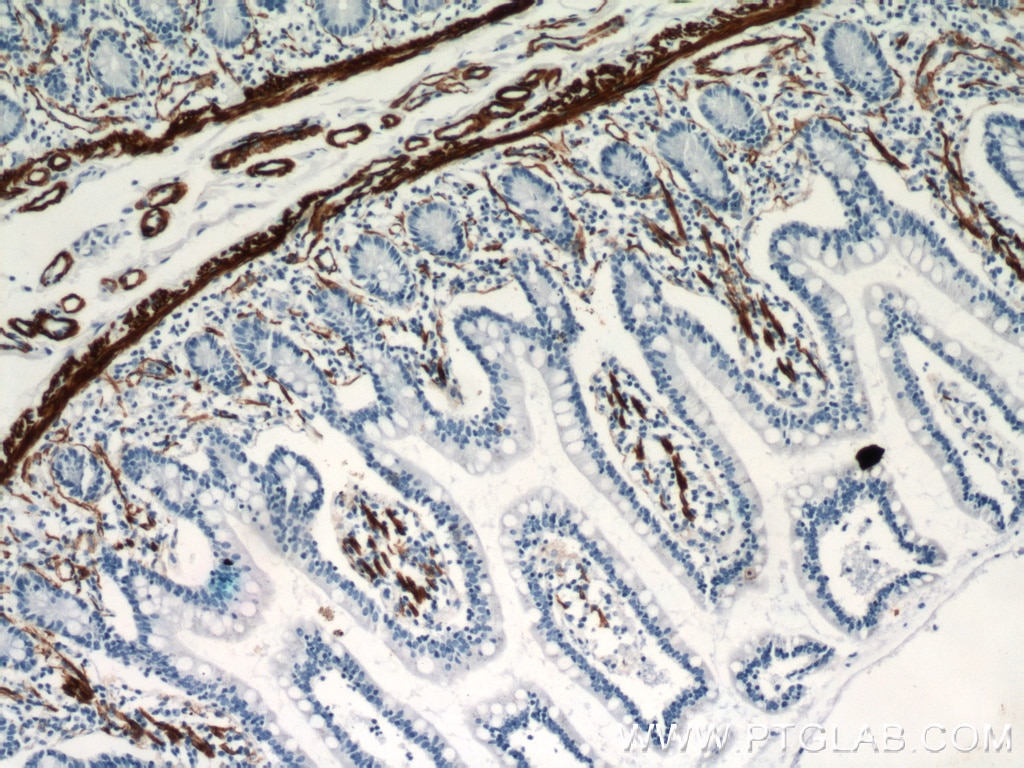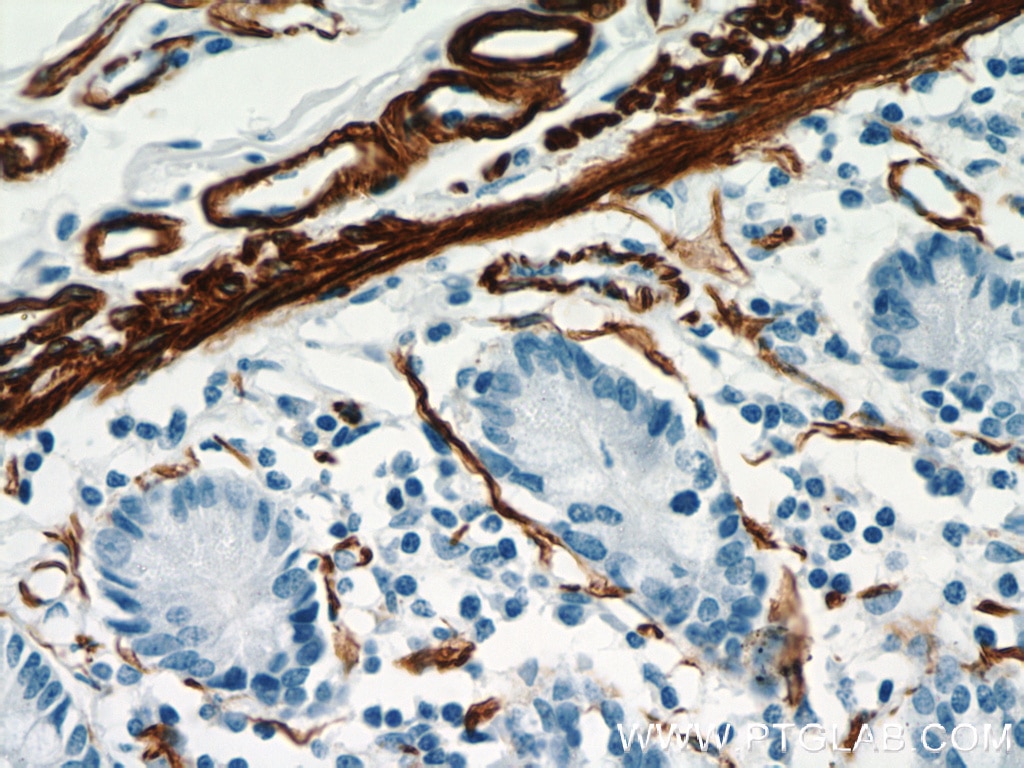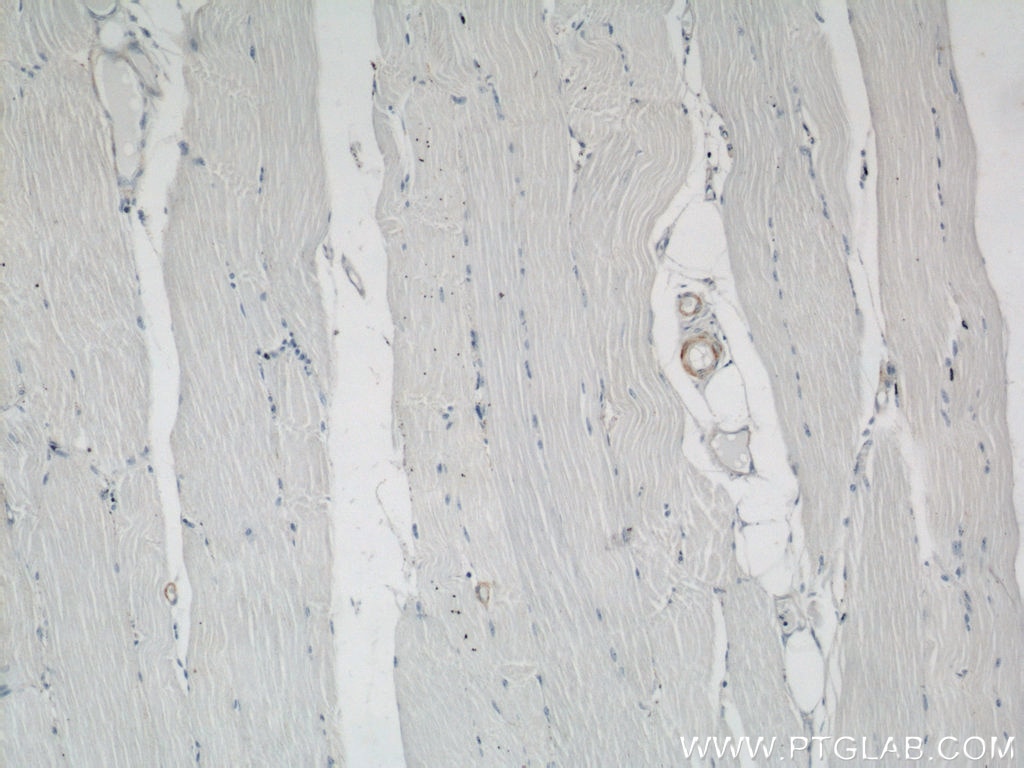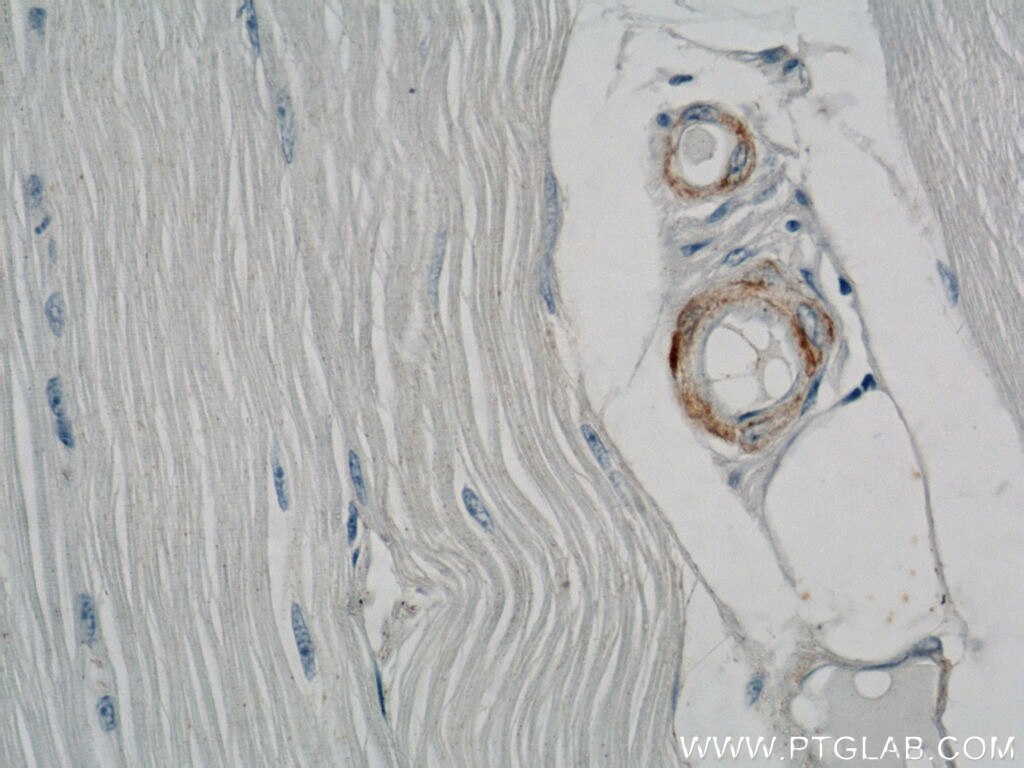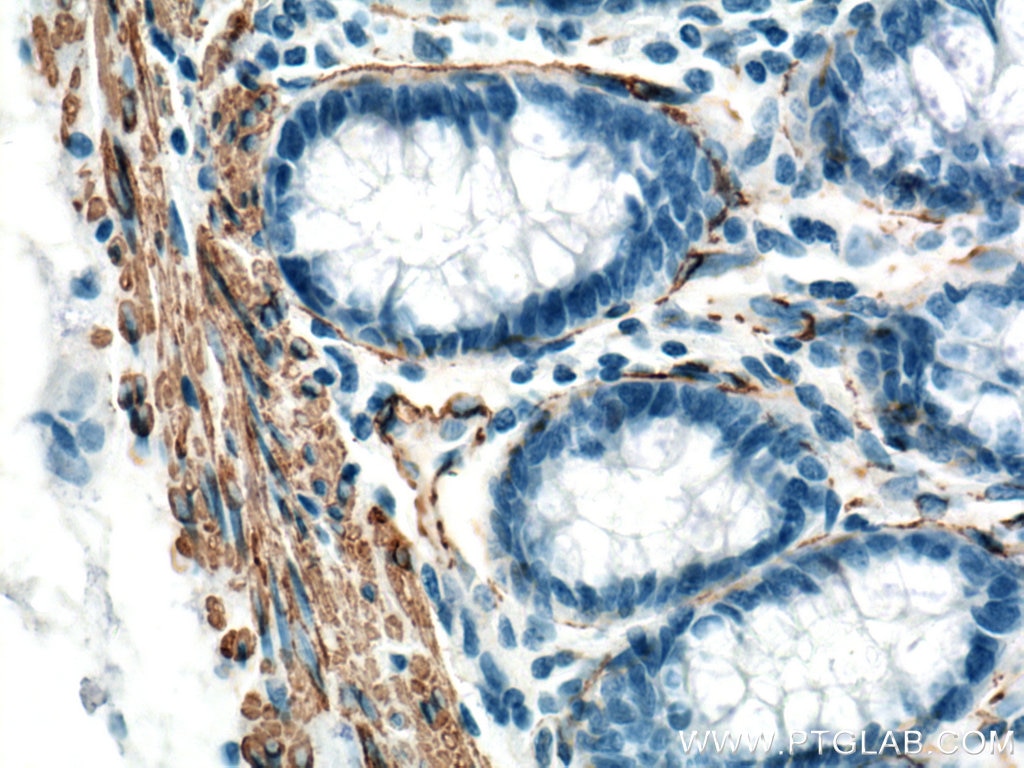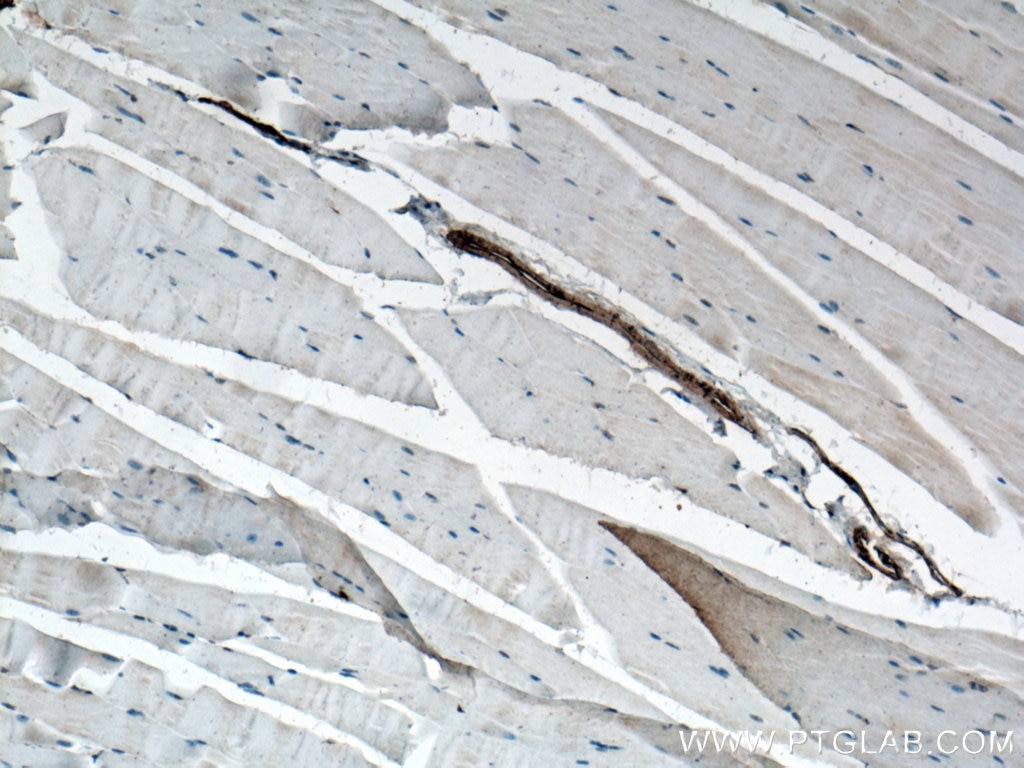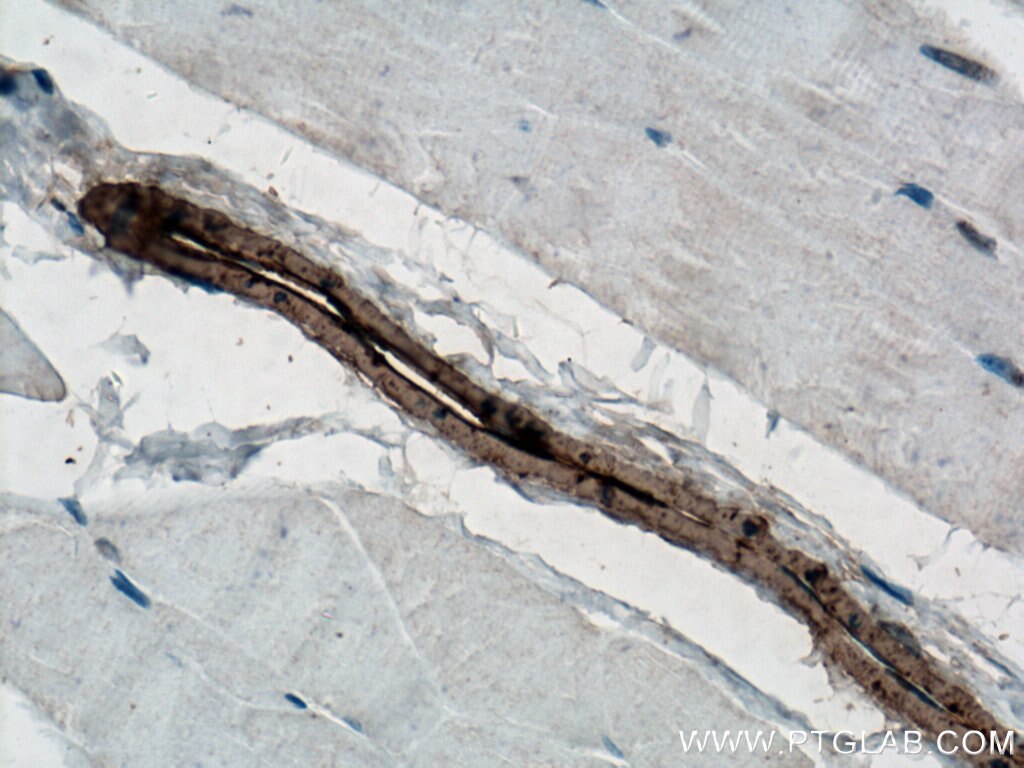Alpha smooth muscle actin Polyklonaler Antikörper
Alpha smooth muscle actin Polyklonal Antikörper für WB, IHC, IP, ELISA
Wirt / Isotyp
Kaninchen / IgG
Getestete Reaktivität
human, Maus, Ratte
Anwendung
WB, IHC, IF, IP, ELISA
Konjugation
Unkonjugiert
Kat-Nr. : 23081-1-AP
Synonyme
Geprüfte Anwendungen
| Erfolgreiche Detektion in WB | Mausherzgewebe, braunes Mausfettgewebe, Mausnierengewebe, Mauslebergewebe, Maus-Skelettmuskelgewebe, Rattenherzgewebe |
| Erfolgreiche IP | Mausherzgewebe |
| Erfolgreiche Detektion in IHC | humanes Herzgewebe, humanes Kolongewebe, humanes Uterusmyomgewebe, humanes Leberkarzinomgewebe, humanes Lebergewebe, humanes Skelettmuskelgewebe, humanes Dünndarmgewebe, Maus-Skelettmuskelgewebe, Stromatumorgewebe Hinweis: Antigendemaskierung mit TE-Puffer pH 9,0 empfohlen. (*) Wahlweise kann die Antigendemaskierung auch mit Citratpuffer pH 6,0 erfolgen. |
Empfohlene Verdünnung
| Anwendung | Verdünnung |
|---|---|
| Western Blot (WB) | WB : 1:1000-1:4000 |
| Immunpräzipitation (IP) | IP : 0.5-4.0 ug for 1.0-3.0 mg of total protein lysate |
| Immunhistochemie (IHC) | IHC : 1:200-1:1000 |
| It is recommended that this reagent should be titrated in each testing system to obtain optimal results. | |
| Sample-dependent, check data in validation data gallery | |
Veröffentlichte Anwendungen
| WB | See 23 publications below |
| IHC | See 13 publications below |
| IF | See 9 publications below |
Produktinformation
23081-1-AP bindet in WB, IHC, IF, IP, ELISA Alpha smooth muscle actin und zeigt Reaktivität mit human, Maus, Ratten
| Getestete Reaktivität | human, Maus, Ratte |
| In Publikationen genannte Reaktivität | human, Maus, Ratte |
| Wirt / Isotyp | Kaninchen / IgG |
| Klonalität | Polyklonal |
| Typ | Antikörper |
| Immunogen | Alpha smooth muscle actin fusion protein Ag19481 |
| Vollständiger Name | actin, alpha 2, smooth muscle, aorta |
| Berechnetes Molekulargewicht | 377 aa, 42 kDa |
| Beobachtetes Molekulargewicht | 42 kDa |
| GenBank-Zugangsnummer | BC017554 |
| Gene symbol | Alpha smooth muscle actin |
| Gene ID (NCBI) | 59 |
| Konjugation | Unkonjugiert |
| Form | Liquid |
| Reinigungsmethode | Antigen-Affinitätsreinigung |
| Lagerungspuffer | PBS with 0.02% sodium azide and 50% glycerol |
| Lagerungsbedingungen | Bei -20°C lagern. Nach dem Versand ein Jahr lang stabil Aliquotieren ist bei -20oC Lagerung nicht notwendig. 20ul Größen enthalten 0,1% BSA. |
Hintergrundinformationen
ACTA2 (also known as α-smooth muscle actin or α-SMA) belongs to the actin family. Actins are highly conserved proteins that are involved in various types of cell motility and are ubiquitously expressed in all eukaryotic cells. ACTA2 is primarily expressed in vascular smooth muscle and anti-ACTA2 is commonly used to marker smooth muscle cells. This antibody is specific to the ACTA2. It selectively stains the vascular smooth muscle but not cardiac or skeletal muscle.
Protokolle
| PRODUKTSPEZIFISCHE PROTOKOLLE | |
|---|---|
| WB protocol for Alpha smooth muscle actin antibody 23081-1-AP | Protokoll herunterladen |
| IHC protocol for Alpha smooth muscle actin antibody 23081-1-AP | Protokoll herunterladenl |
| IP protocol for Alpha smooth muscle actin antibody 23081-1-AP | Protokoll herunterladen |
| STANDARD-PROTOKOLLE | |
|---|---|
| Klicken Sie hier, um unsere Standardprotokolle anzuzeigen |
Publikationen
| Species | Application | Title |
|---|---|---|
Nat Commun Dental cell type atlas reveals stem and differentiated cell types in mouse and human teeth. | ||
Drug Des Devel Ther Keloid Patient Plasma-Derived Exosomal hsa_circ_0020792 Promotes Normal Skin Fibroblasts Proliferation, Migration, and Fibrogenesis via Modulating miR-193a-5p and Activating TGF-β1/Smad2/3 Signaling | ||
Biofabrication Antibacterial, ROS scavenging and angiogenesis promotingϵ-Polylysine/gelatin based hydrogel containing CTLP to regulate macrophages for pressure ulcer healing | ||
Cardiovasc Res Plasma levels of trimethylamine-N-oxide can be increased with 'healthy' and 'unhealthy' diets and do not correlate with the extent of atherosclerosis but with plaque instability. | ||
Environ Pollut Polystyrene microplastics cause cardiac fibrosis by activating Wnt/β-catenin signaling pathway and promoting cardiomyocyte apoptosis in rats. | ||
